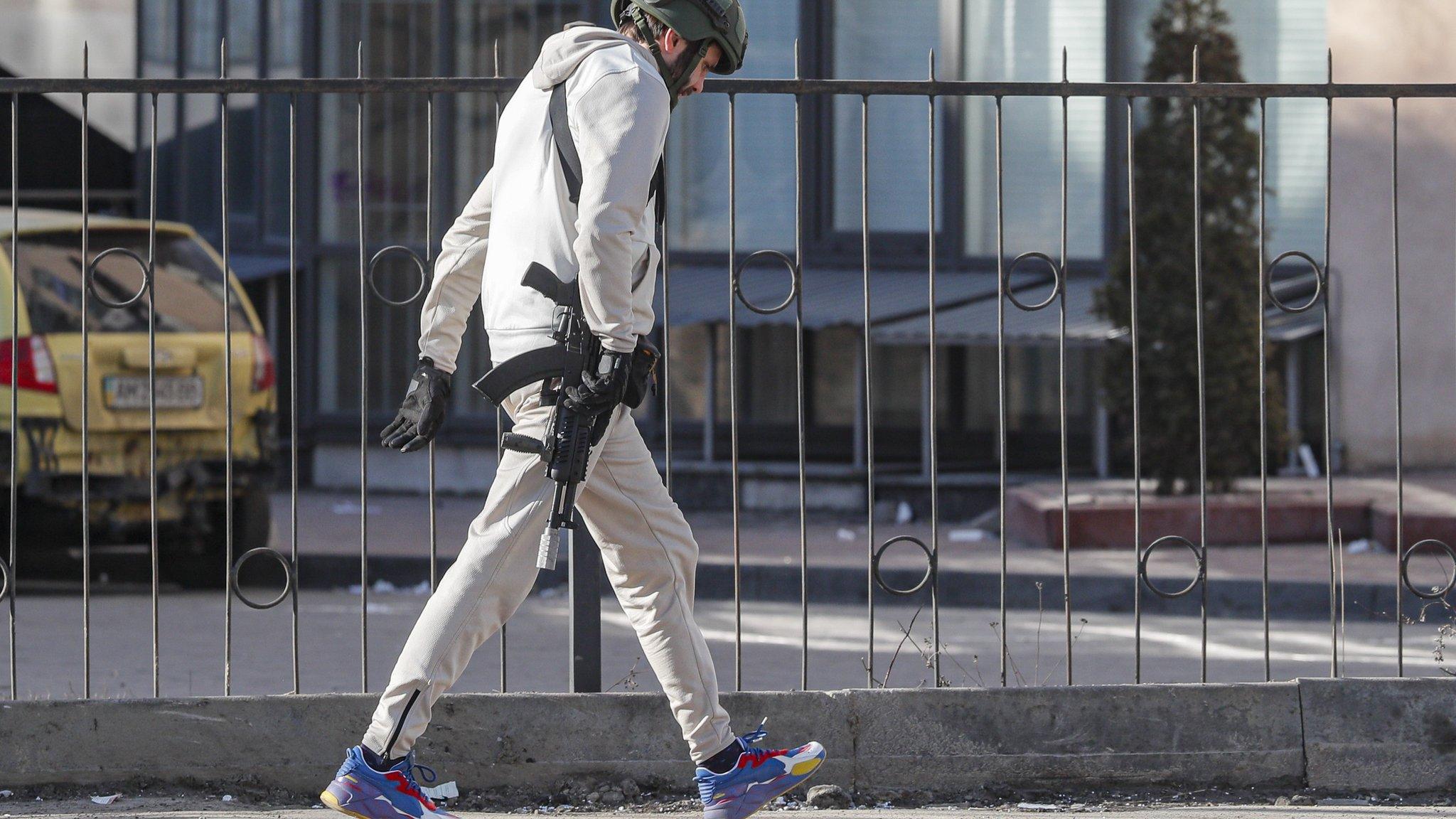Ukraine invasion: Kharkiv residents describe intense battle to defend city
- Published
WATCH: Ukrainian troops street fighting in Kharkiv
Ukrainian forces say they have repelled an attack on the country's second city Kharkiv after fierce clashes with Russian forces.
Regional governor Oleh Synehubov said the city was now rid of Russian troops - after street-to-street fighting.
Thousands spent the night in basements and shelters, with intense shelling described by one resident as "something like Star Wars above your head".
"The wave of the blast was so strong that my ears popped," another said.
A nine-storey residential tower was hit, emergency services said, killing an elderly woman, external while about 60 people survived after hiding in the basement.
Russian troops also blew up a natural gas pipeline nearby, according to a Ukrainian state communications agency.
Kharkiv residents who spoke to the BBC told of their fear and apprehension as the attack raged on, as well as their pride in Ukrainian forces and reservists in holding back Russian troops.
Just before an explosion in the Saltivka district, one woman said her neighbour was instructing their young children on what to do in the event of a blast.
"Listening to this was horrific, my hairs were standing on end at the thought that three-year-old children were having to be taught what to do during shelling," she said.
"Throughout the night one young girl kept waking up her mum. She'd sit up crying screaming: 'Mom, I'm scared, please save me, save me now.'
"She only calmed down by the morning after her mum had sat holding her all through the night."
The 34-year-old, who requested anonymity, added: "Right now, the offensive against the city is still going on. I hear the blasts all the time - even though I know Kharkiv is controlled by Ukraine, 100%."
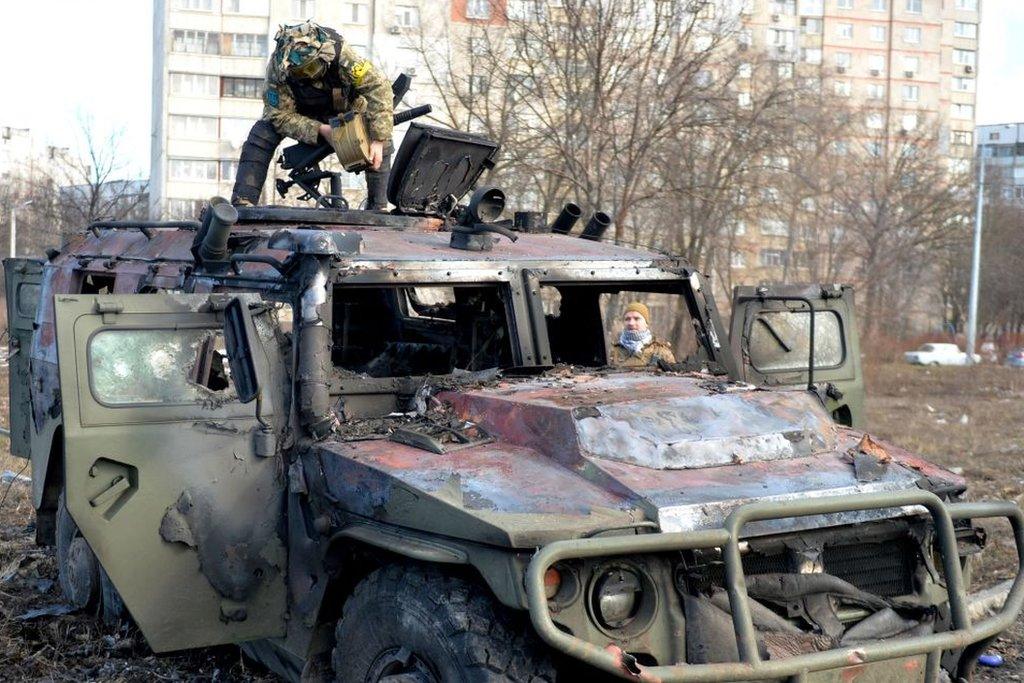
The Ukrainian military repelled Russian forces, with light vehicles destroyed in some parts of the city

For university professor Dmitry Shabanov, the fighting came uncomfortably close.
"Tanks were fighting only a few kilometres from our home, and the operation to counter some saboteurs that entered Kharkiv was just next to our yard," he said.
"We are staying in our house with a cellar, it's my wife and me, two sons who are seven and 11 years old, and my 80-year-old mum. We keep the boys in the cellar most of the time," he added.
Maria Avdeev, another resident, said groups of Russian troops were eliminated "one by one" by the Ukrainian military.
"Also, a number of Russian soldiers and officers were captured, so they did not basically fight back, when they saw that they had no other option," she said.
Oleksii Svid, 30, managed to travel to buy food for his family and his pets, Kuzya the cat and Larry the dog, on Saturday but found supplies were running low.
Nonetheless, he said many local people remained resilient - with talk about how to prevent Russian troops from entering the city and ways to help the Ukrainian army.
"The main issue right now it to gain access to the food, as most shops don't have a way to refill stock of sugar, flour, dairy, and meat," he said. "There's also a shortage of fuel in gas stations in the city."
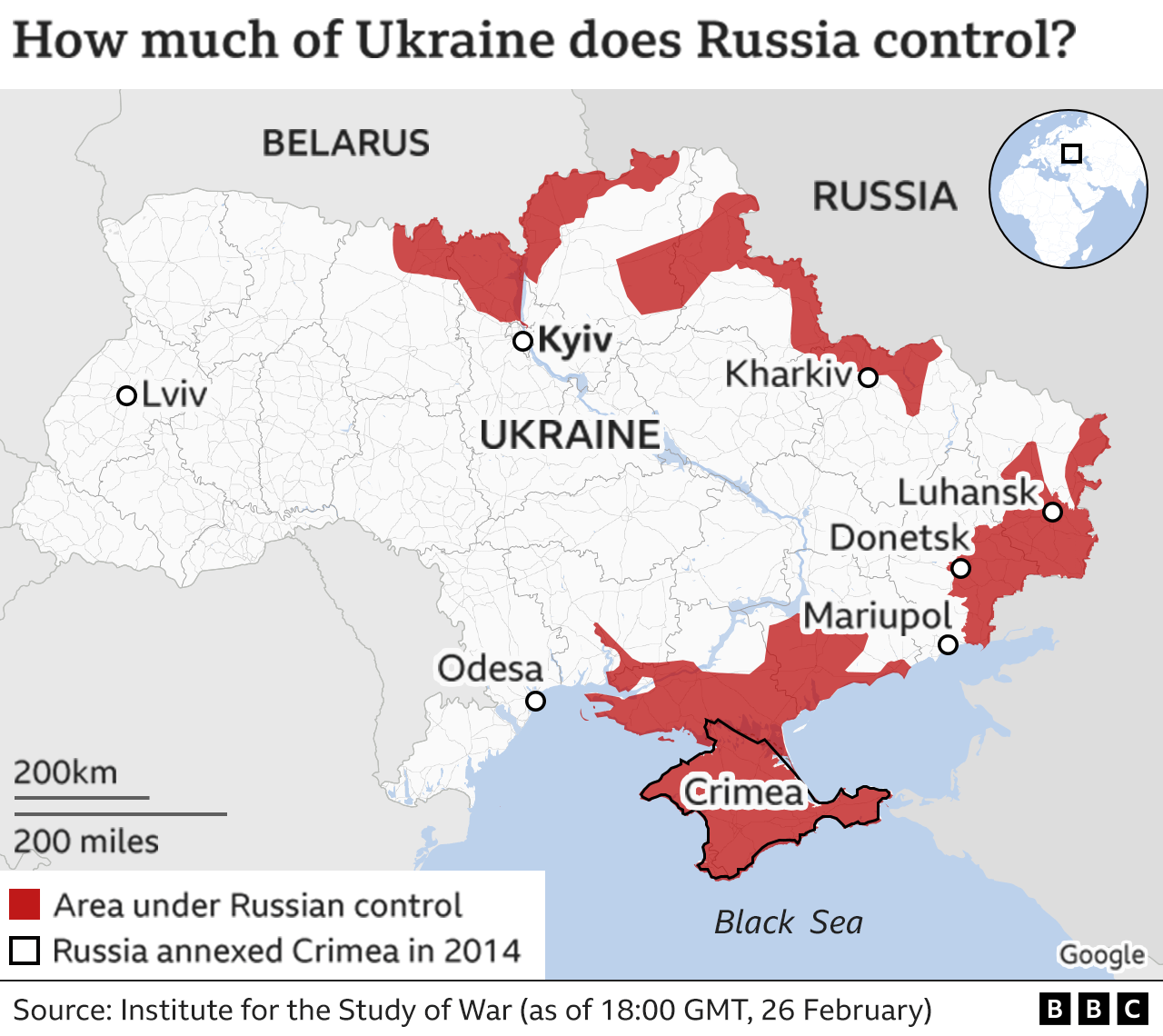

The BBC has verified a video on the Telegram messaging platform which shows Russian trucks, external driving into Kharkiv early on Sunday.
Another video verified by the BBC showed a group of Ukrainian soldiers taking cover behind a wall, while one launched a shoulder-fired missile.
In the north-eastern city of Okhtyrka, 100km (60 miles) from Kharkiv, the local governor said at least six Ukrainians - including a seven-year-old girl - had died as a result of a Russian attack on Friday.
A kindergarten and an orphanage were among the buildings reportedly hit, which Russia has denied.
The full extent of casualties in Ukraine is very hard to confirm. The country's human rights commissioner says 210 civilians have been killed.
So far the United Nations has recorded 64 confirmed civilian deaths and many more wounded, and says it expects the true number to be much higher.
Military deaths are also very hard to verify. The UN said by Saturday at least 134 Ukrainian military had been killed. Russia conceded on Sunday that it has suffered losses, but has not released a figure. Ukraine says 4,300 Russian servicemen have so far died.
In other developments, as the Russian invasion neared the end of its fourth day:
Russian President Vladimir Putin put the country's nuclear weapons on special alert, prompting condemnation by the US
Ukraine's President Volodymyr Zelensky said he was willing to send a delegation to the Ukrainian-Belarusian border for talks with the Russians without preconditions
Thousands more Ukrainians travelled towards neighbouring countries to escape the war, with UN estimating refugee numbers have reached 368,000 and rising, external
Russia's central bank braced for economic turmoil after the EU, US and their allies announced the harshest financial measures imposed on Russia to date
Russian airliners turned round in mid-air as dozens of European nations banned flights from the country amid rising pressure on Moscow

Russia attacks Ukraine: More coverage
THE BASICS: Why is Putin invading Ukraine?
ZELENSKY: Comedian president rises to the moment


What questions do you have about the Russian invasion of Ukraine?
In some cases your question will be published, displaying your name, age and location as you provide it, unless you state otherwise. Your contact details will never be published. Please ensure you have read our terms & conditions and privacy policy.
Use this form to ask your question:
If you are reading this page and can't see the form you will need to visit the mobile version of the BBC website to submit your question or send them via email to YourQuestions@bbc.co.uk, external. Please include your name, age and location with any question you send in.

Related topics
- Published26 February 2022
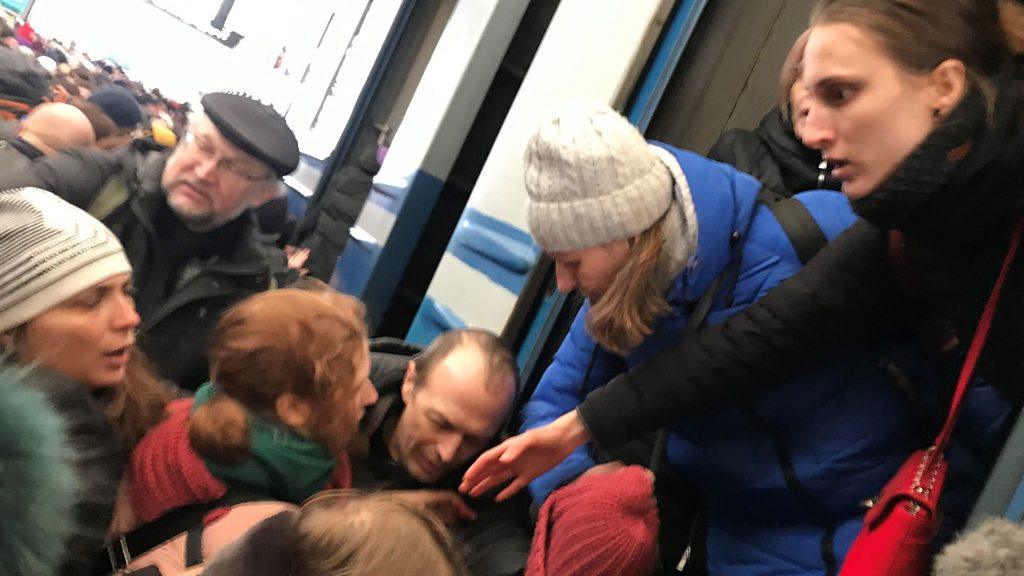
- Published27 February 2022
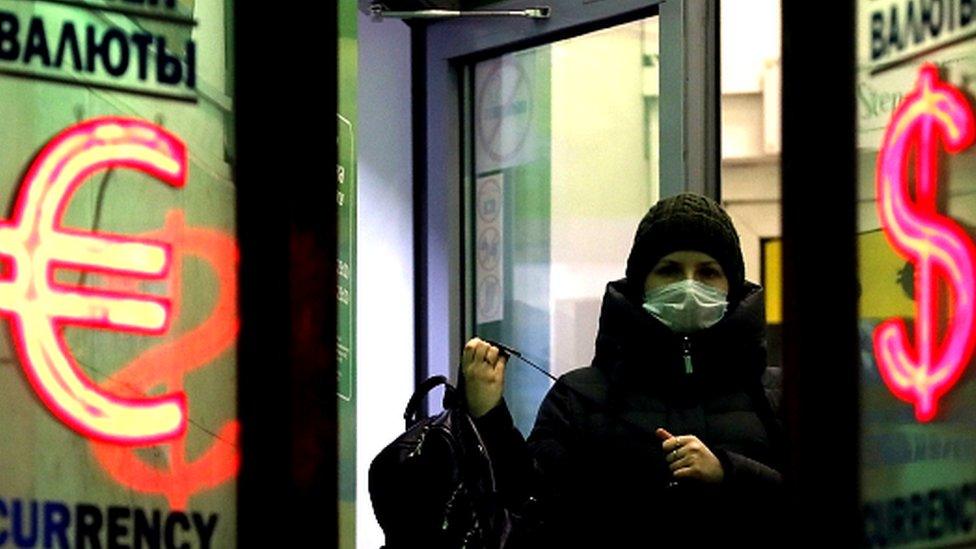
- Published27 February 2022
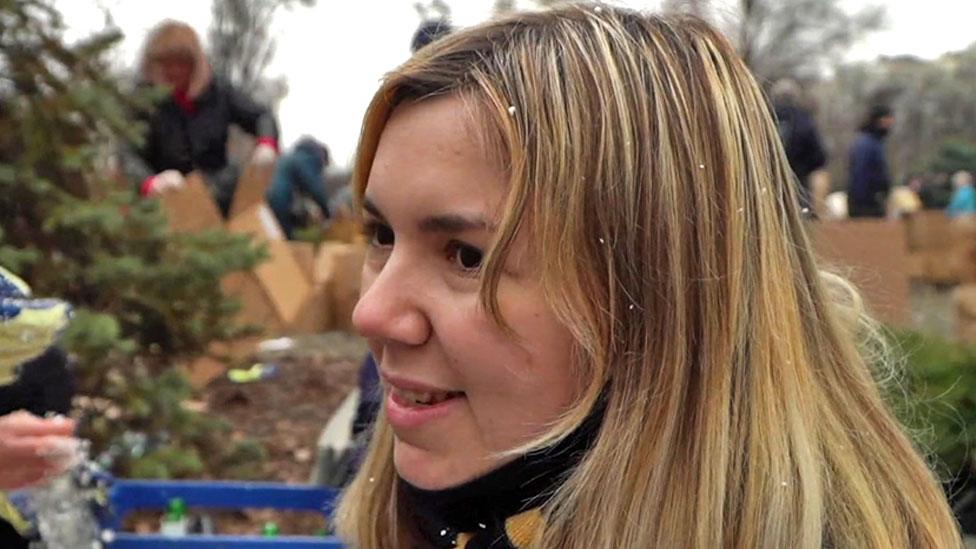
- Published26 February 2022
